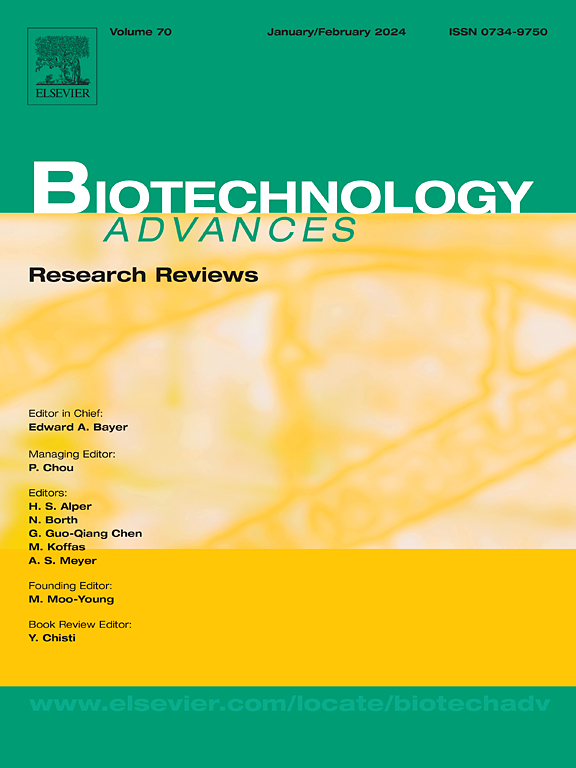探索塑料回收、降解和再循环的生物技术,实现可持续发展的未来。
IF 12.1
1区 工程技术
Q1 BIOTECHNOLOGY & APPLIED MICROBIOLOGY
引用次数: 0
摘要
对塑料商品的持续需求、回收基础设施不足以及塑料废物造成的普遍环境污染构成了一个巨大的全球挑战。回收、降解和升级回收是解决塑料污染问题的三个最重要的方法。机械和化学预处理塑料废物的顺序酶和微生物降解可以精心安排,随后微生物通过混合培养系统转化为增值化学品和聚合物。此外,塑料降解酶可以通过蛋白质工程优化,以提高它们在具有挑战性的高盐度和高温度条件下在广泛的聚合物底物上的特定结合能力、稳定性和催化效率。此外,酶混合物的生产和配方可以微调,以适应特定的废物成分,促进它们在体外、体内和与化学技术相结合的有效部署。在这里,我们强调了综合策略,利用微生物过程转化混合塑料的化石衍生聚合物,如PP, PE, PU, PET和PS,最显著的聚酯,结合潜在的可生物降解替代品,如PLA和PHA。任何抵抗酶降解的残余物质都可以在适当的物理化学处理后重新引入工艺循环。本文章由计算机程序翻译,如有差异,请以英文原文为准。
Exploring biotechnology for plastic recycling, degradation and upcycling for a sustainable future
The persistent demand for plastic commodities, inadequate recycling infrastructure, and pervasive environmental contamination due to plastic waste present a formidable global challenge. Recycling, degradation and upcycling are the three most important ways to solve the problem of plastic pollution. Sequential enzymatic and microbial degradation of mechanically and chemically pre-treated plastic waste can be orchestrated, followed by microbial conversion into value-added chemicals and polymers through mixed culture systems. Furthermore, plastics-degrading enzymes can be optimized through protein engineering to enhance their specific binding capacities, stability, and catalytic efficiency across a broad spectrum of polymer substrates under challenging high salinity and temperature conditions. Also, the production and formulation of enzyme mixtures can be fine-tuned to suit specific waste compositions, facilitating their effective deployment both in vitro, in vivo and in combination with chemical technologies. Here, we emphasized the comprehensive strategy leveraging microbial processes to transform mixed plastics of fossil-derived polymers such as PP, PE, PU, PET, and PS, most notably polyesters, in conjunction with potential biodegradable alternatives such as PLA and PHA. Any residual material resistant to enzymatic degradation can be reintroduced into the process loop following appropriate physicochemical treatment.
求助全文
通过发布文献求助,成功后即可免费获取论文全文。
去求助
来源期刊

Biotechnology advances
工程技术-生物工程与应用微生物
CiteScore
25.50
自引率
2.50%
发文量
167
审稿时长
37 days
期刊介绍:
Biotechnology Advances is a comprehensive review journal that covers all aspects of the multidisciplinary field of biotechnology. The journal focuses on biotechnology principles and their applications in various industries, agriculture, medicine, environmental concerns, and regulatory issues. It publishes authoritative articles that highlight current developments and future trends in the field of biotechnology. The journal invites submissions of manuscripts that are relevant and appropriate. It targets a wide audience, including scientists, engineers, students, instructors, researchers, practitioners, managers, governments, and other stakeholders in the field. Additionally, special issues are published based on selected presentations from recent relevant conferences in collaboration with the organizations hosting those conferences.
 求助内容:
求助内容: 应助结果提醒方式:
应助结果提醒方式:


